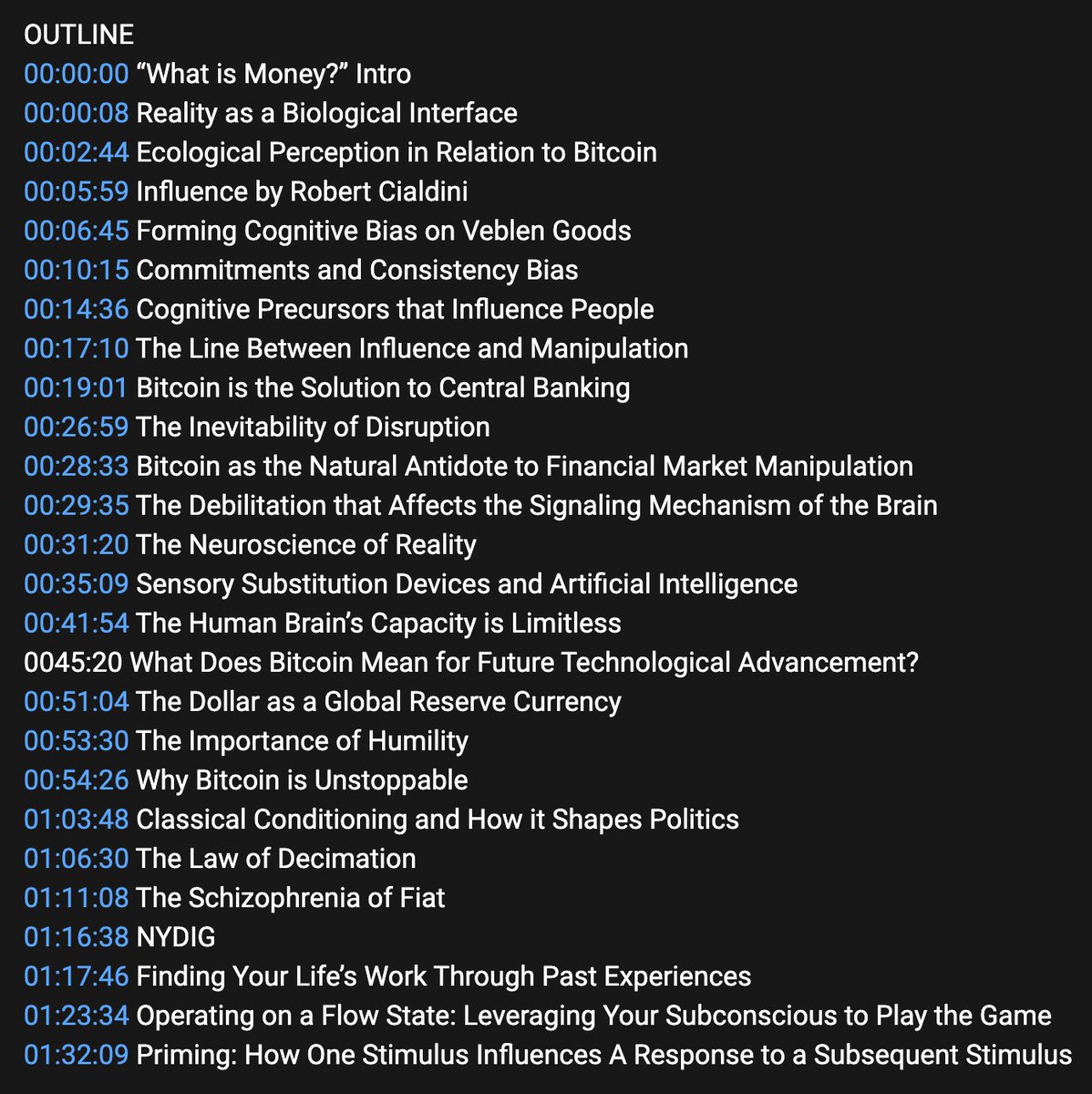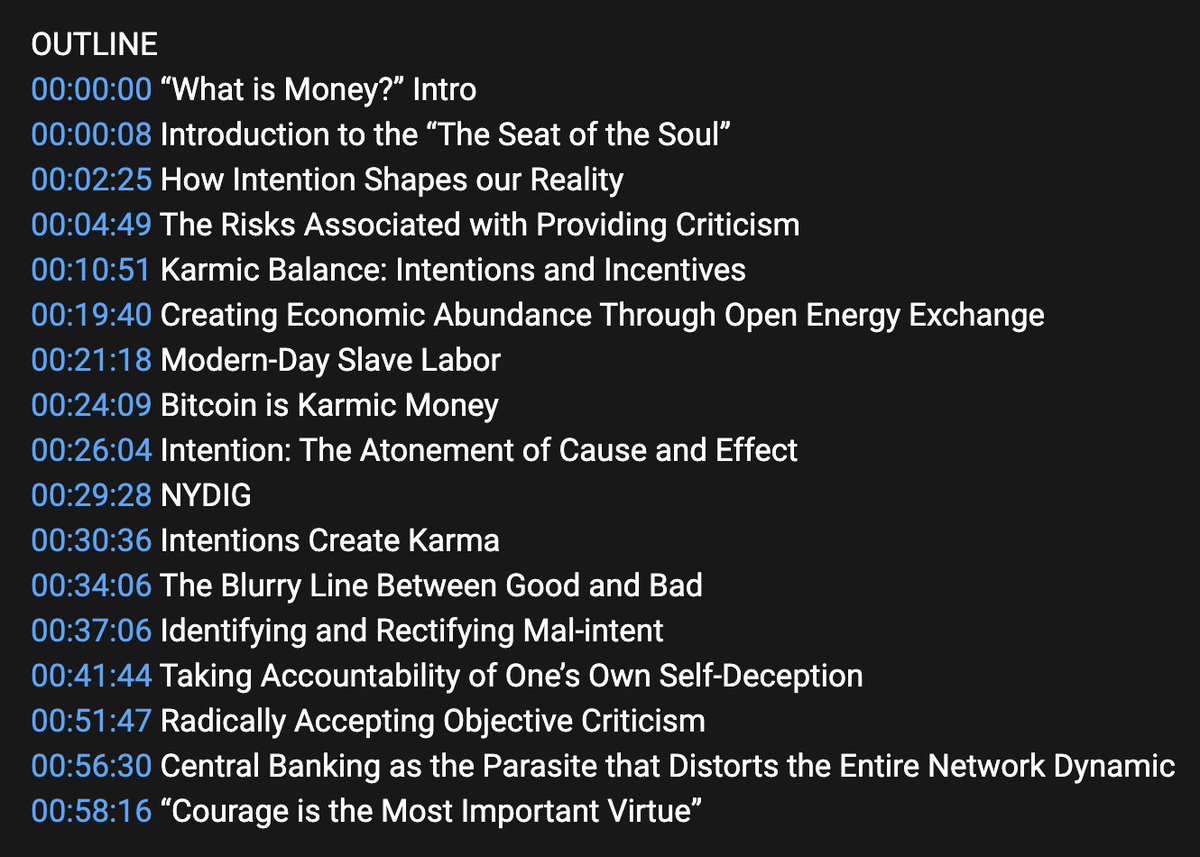
In celebration of November 21st, The @WhatisMoneyShow is releasing the Pysh Series (6 episodes total) all at once, today. In The Pysh Series, @PrestonPysh and I explore two books:
1. The Brain by David Eagleman
2. The Seat of the Soul by Gary Zukav
Episode thread⬇️
1. The Brain by David Eagleman
2. The Seat of the Soul by Gary Zukav
Episode thread⬇️
Preston and I took some real thematic risks producing this series, as it deviates significantly from "traditional #Bitcoin content."
We welcome your feedback, and I encourage people to remix snippets of this series into clips, memes, or other media assets which I will amplify!!
We welcome your feedback, and I encourage people to remix snippets of this series into clips, memes, or other media assets which I will amplify!!
If this style of series release resonates with everyone, I will strive to do something similar on the 21st of each month going forward, in celebration of 21M #Bitcoin as the motif for a 21st century digital renaissance.
Now, let's go orange-pill humanity!!!
Now, let's go orange-pill humanity!!!
• • •
Missing some Tweet in this thread? You can try to
force a refresh











